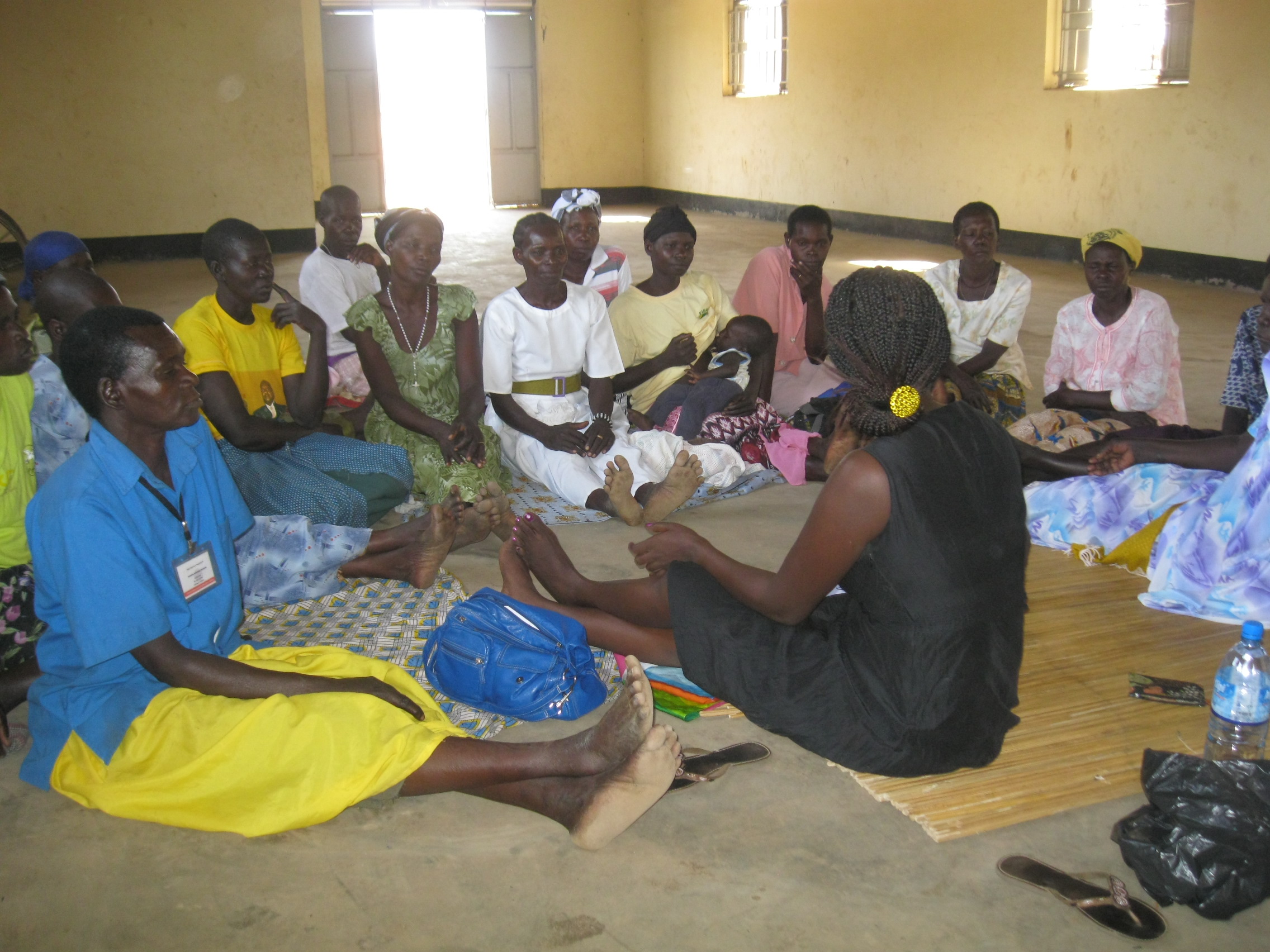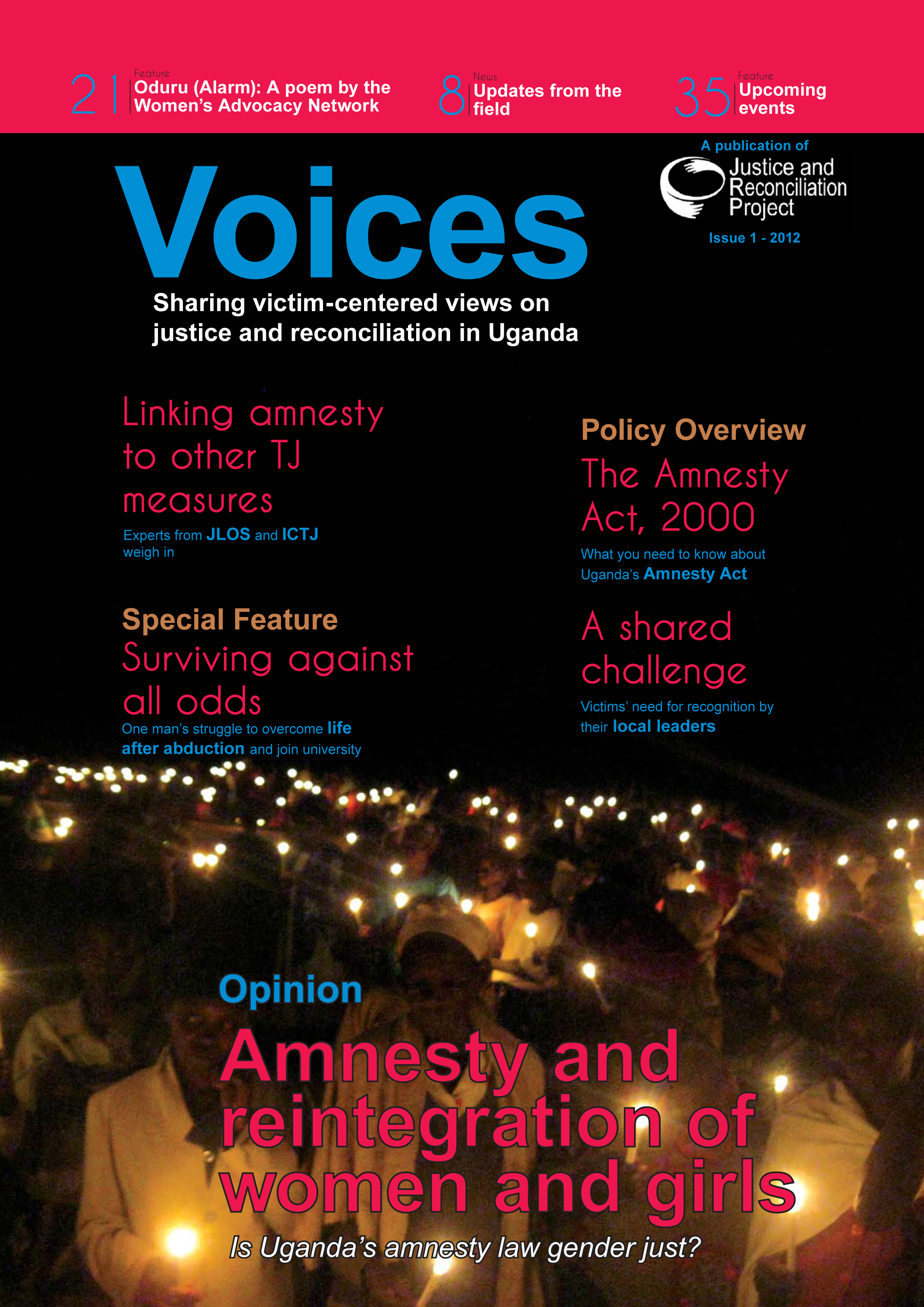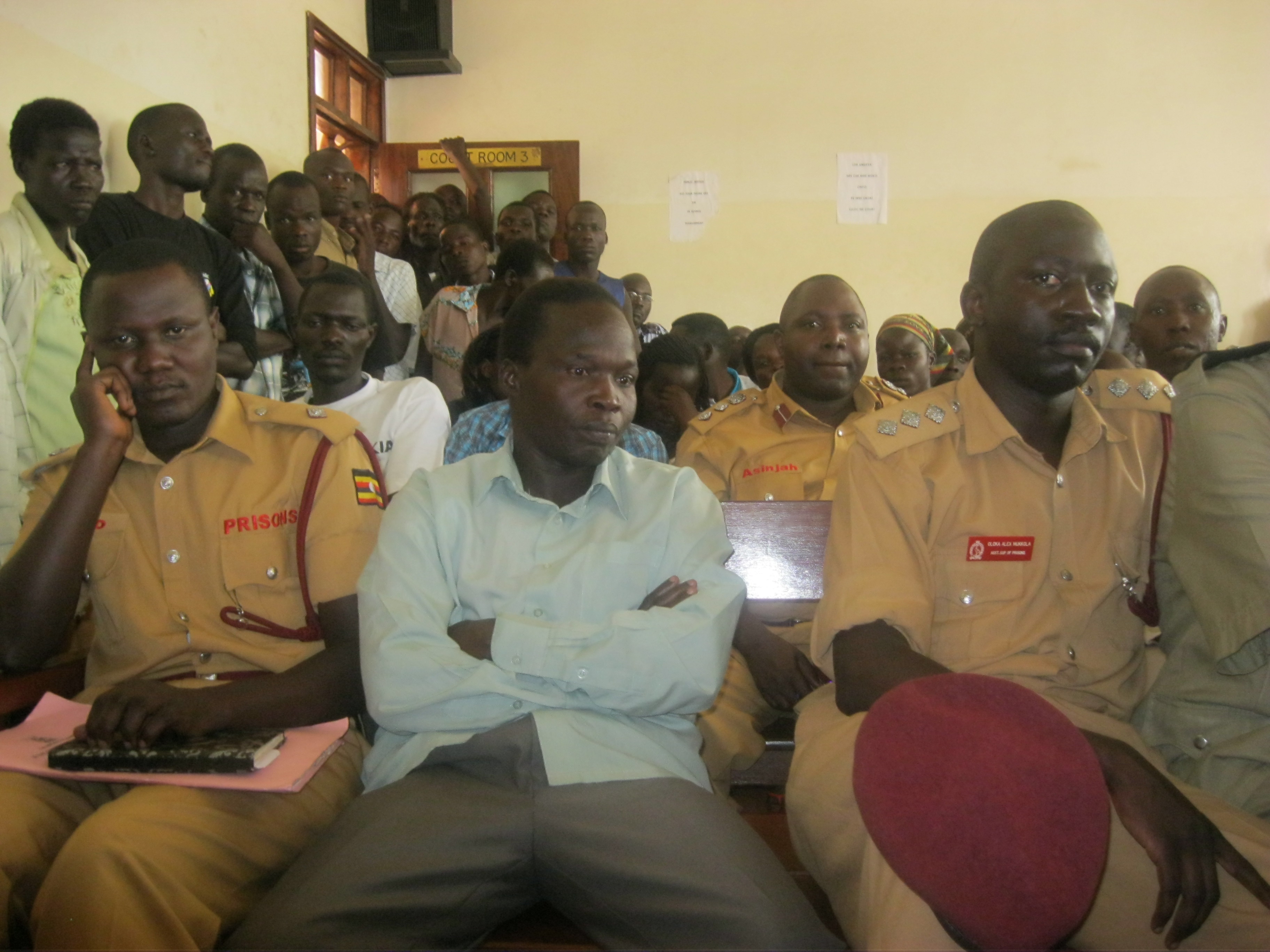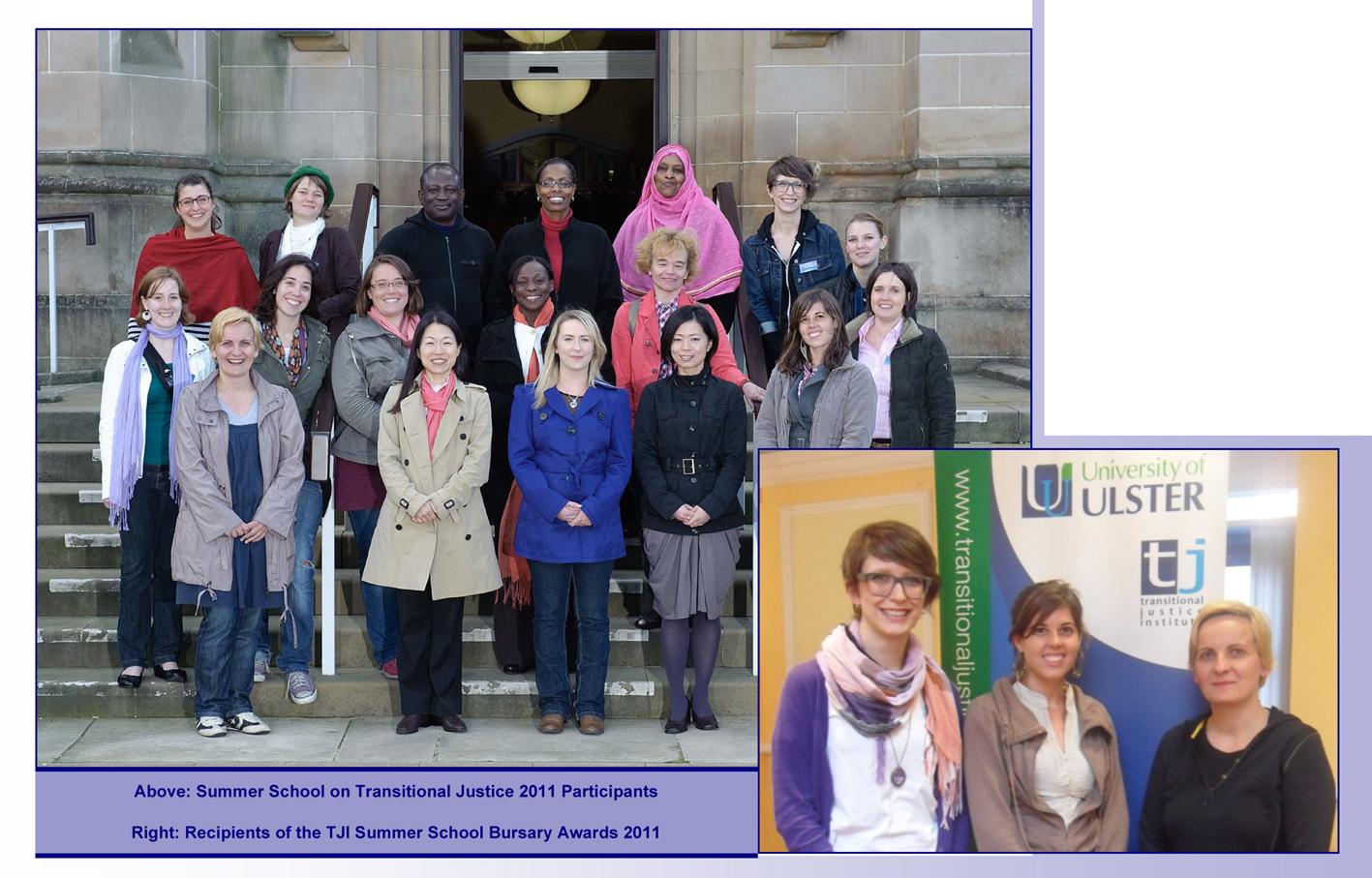FOR IMMEDIATE RELEASE
29th August 2012
The Right to Know: Campaign against disappearances in Northern Uganda
GULU – On the 30th August 2012 the Justice and Reconciliation Project will launch the “Right to Know” campaign on the internationally recognised day against enforced disappearances. In commemoration of this day, we are reminded of the long walk to relative peace in Northern Uganda and the turbulent past atrocities experienced for over two decades in the region. The “Right to Know” campaign is an advocacy platform that seeks to explore and situate the concerns and anguish of families/relatives of missing persons and to contextualise them within the on-going Transitional Justice (TJ) debates taking place in Uganda.
In collaboration with Children/Youth as Peace Builders (CAP) Uganda, JRP will hold a Dialogue on Disappearances to commemorate the International Day of the Disappeared on 30 August 2012. The Dialogue will take place at Hotel Free Zone in Gulu between 09:00am and 1:30pm on Thursday the 30th of August 2012 and will be attended by family members and relatives of missing persons from West Nile, Acholi, Lango and Teso sub-regions as well as members of the Women’s Advocacy Network (WAN). The day’s events will include a screening of a short film entitled “The Right to Truth and Justice”, which highlights the views of families of missing persons, as well as a candle lighting and prayer to pay respect and show solidarity with families affected by the issue. The event will be officiated by the Guest of Honour, Rwot David Acana II, the Paramount Chief of the Acholi Kingdom.
Based on JRP’s interactions with victims and survivors of the conflict, the “Right to Know” campaign arose from a realisation that despite the fact that the guns have fallen silent in Northern Uganda, many are still struggling to come to terms with some of its effects. Statistics published by CAP Uganda in 2012 show that in Gulu District alone up to 30 per cent of all people abducted by the LRA are still unaccounted for and 1036 alone are still missing as a result of the conflict in Northern Uganda. As such, many families continue to seek answers as to the whereabouts of their loved ones. The campaign aims to acknowledge their efforts and to bring attention to the issue of missing persons to the Government of Uganda, Civil Society Organisations and the public as a whole.
JRP acknowledges the efforts of the Justice Law and Order Sector (JLOS) to promote Transitional Justice (TJ) which have ushered in renewed efforts towards accountability and reconciliation in Uganda. While these avenues are commendable, concerns remain that the question of persons still missing or unaccounted for which continue to be unaddressed and have not been subject to sufficient debate in the on-going TJ processes. JRP therefore calls upon the JLOS to come up with specific policy and pragmatic actions within the on-going TJ mechanisms to address the issue of persons still missing or unaccounted with immediate effect.
Other activities involved in the campaign have included:
- A series of dialogues in the Greater North – Public dialogues with community members have been held in Pakwach in Arua District, Obalanga in Amuria District and Abok in Oyam District.
- Radio discussions – Radio talk shows have been a crucialmedium for engaging with the public, sharing individual stories of missing persons and bringing greater publicity to the issue.
- Documentary – The documentary “The Right to Truth and Justice” will be available for viewing on JRP’s website, YouTube account and at the Gulu Office on the 3rd of September onwards.
- Online debates – Members of the public are encouraged to submit their views on JRP’s Facebook page and to read blogs, view pictures and submit comments on our website.
- JRP’s Voices Magazine – Members of the public are encouraged to submit articles in the next issue of the Voices magazine which will be focusing on the theme ‘the Right to Truth’ with special consideration to missing persons.
###
ABOUT JRP
The Justice and Reconciliation Project promotes locally sensitive and sustainable peace in Africa’s Great Lakes region by focusing on the active involvement of grassroots communities in local-level transitionaljustice. Formerly a partnership of the Gulu District NGO Forum and the Liu Institute for Global Issues, University of British Columbia, Canada, JRP has played a key role in transitional justice in Uganda since 2005, through seeking to understand and explain the interests, needs, concerns and views of thecommunities affected by war between the Lord’s Resistance Army (LRA) and Government of Uganda (GOU).JRP became an independent NGO in 2010 with support from the Royal Norwegian Embassy, Kampala.
Visit our website for media information and our press kit – http://justiceandreconciliation.com/about/information-kit/









